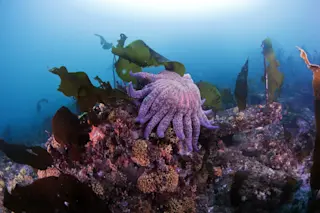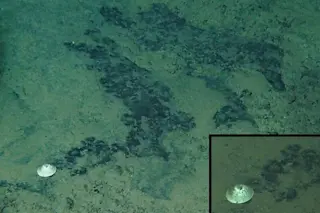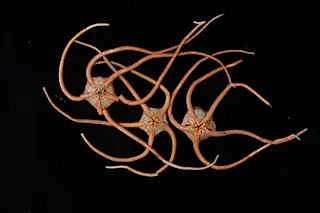When you're nature's ideal killing machine, perhaps color vision is merely an unnecessary affection. New research argues that sharks could be completely colorblind. An Australian team led by Nathan Scott Hart investigated 17 shark species, peeking at the structure of their rod and cone photoreceptor cells in the retina. Human eyes come with red, green, and blue cone variations, allowing us to see in color. But not shark eyes. They appear to have just one kind of cone.
"Our study shows that contrast against the background, rather than color per se, may be more important for object detection by sharks," Hart said. [CNN]
That, Hart says, may explain the common wisdom that sharks love yellow
(and therefore you ought to avoid sunny swimsuits). It may be the reflective quality of yellow that catches a shark's eye, not the hue itself.
"Bright yellow is supposed to be attractive to some sharks, ...













